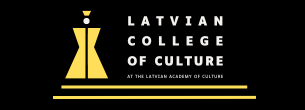Management of Art Institutions
Professional short cycle higher education study program “Management of Art Institutions”,
Qualification to be acquired: Cultural work specialist with specializations in event production, technical production of events, photo and video production, digital content production, music management and event, theatre direction and stage art.
Code of the study program in accordance with the Latvian Education Classification: 41 345
Duration and amount of the study program: 2 years 6 months (full time), 3 years (part time)
100 CP
Type and form of the study program: Full time, Part-time presence,
Admission requirements: General secondary education
The study program provides an opportunity to prepare modern educated, professionally competent and competitive cultural work specialists (cultural methodologists, cultural project managers, organizers and managers of cultural events, festival directors and leaders of interest groups) for work in state and local government institutions, private institutions and non-governmental organizations, who are motivated to engage in innovative creativity and research related to the preservation of cultural heritage. In order to strengthen the theoretical knowledge in practice, training seminars and practical classes are implemented in cultural centres, different institutions in creative industries as well as four work practices. Traineeships are organized in cultural institutions: cultural centres, integrated communication agencies, photo studies, measures in technical equipment supply companies, music events agencies, theatres and non-governmental organizations and associations, as well as within Erasmus it is possible to implement internships in foreign cultural institutions.
The term of accreditation of the study program “Management of Art Institutions” is until October 28, 2023. Currently, the process of evaluating the study direction for the accreditation of the study program with the new name “Organization of Culture and Art Processes” is underway.
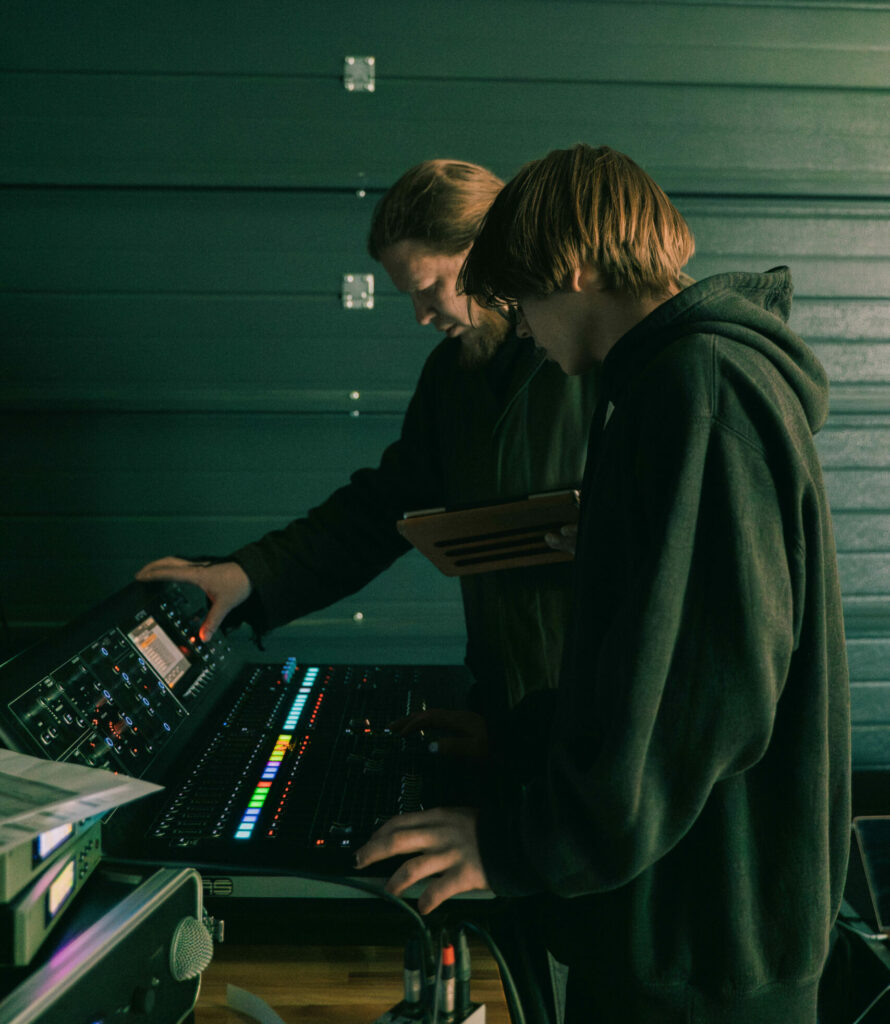
MAIN STUDY COURSES
- Introduction to studies and research
- Methodology of research
- Social psychology
- Critical thinking
- Professional foreign language (English)
- History of world art
- History of world civilization
- Cultural history of Latvia
- Basics of economics
- Environmental protection
- Civil safety
MANDATORY STUDY COURSES OF THE INDUSTRY
- Basics of cultural process management
- Production of cultural events
- Implementation of projects of cultural events
- Preparation of projects
- Risk management in organizing events
- Art of presentation and argumentation
- Improvisation
- Professional language culture and rhetoric
- Cultural marketing
- Digital marketing and social networks
- Basics of Law and Copyright
- Management of Human resources
- Professional Ethics
FREE ELECTIVE STUDY COURSES OF THE INDUSTRY
- Technical implementation of cultural events
- Creation of communication campaigns
RESTRICTED ELECTIVE STUDY COURSES OF THE SPECIALIZATION
- Study courses in event production
- Study courses in technical productions of the events
- Study courses in photo and video production
- Study courses in digital content production
- Study courses in music management
- Study courses in event, theatre direction and stage art
TERM PAPER
TRAINEESHIP
QUALIFICATION PAPER
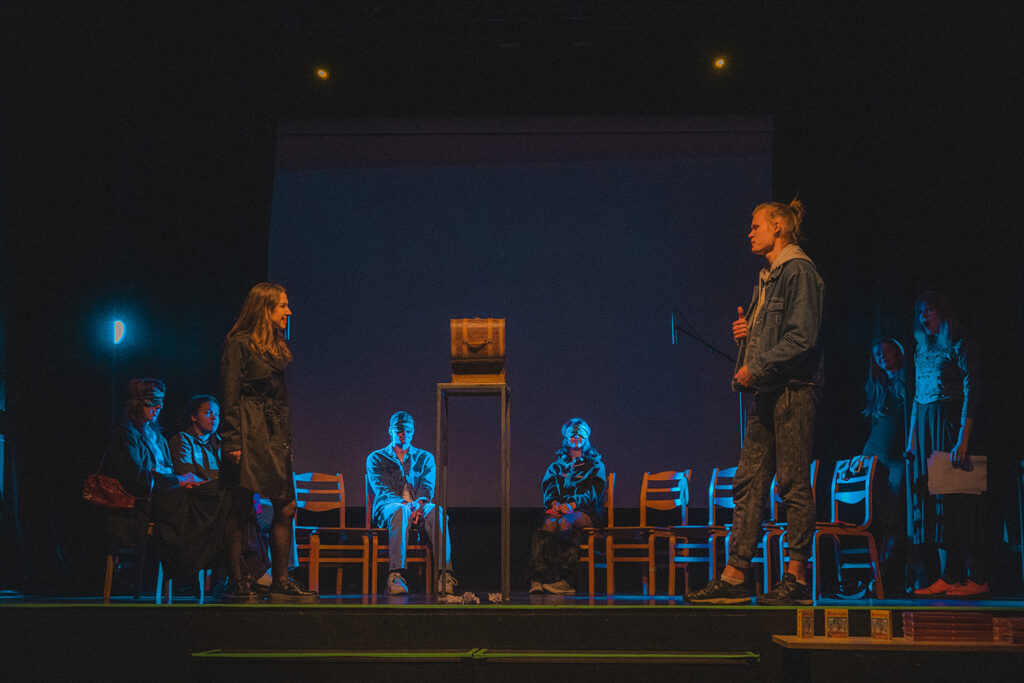
AFTER GRADUATION
Graduates can work as cultural professionals in national, local and non-governmental cultural organizations, planning and organizing cultural-related creative projects and responding to the quality of their artistic level, participating in the implementation of local, regional, governmental and internationally important cultural projects, participating in the planning and deployment of the necessary resources and controlling it, use by coordinating cultural organizations and the creative and technical staff of cultural projects to ensure the management of professional and versatile cultural processes in cultural organizations. The content of the study program, practical orientation in ̄, they know ̄ ̌, skills and competences learned by students in acquiring the qualifications of cultural professionals not only enables them to work successfully in any cultural work organization format but also to develop innovative organizational solutions in support of cultural projects and processes.
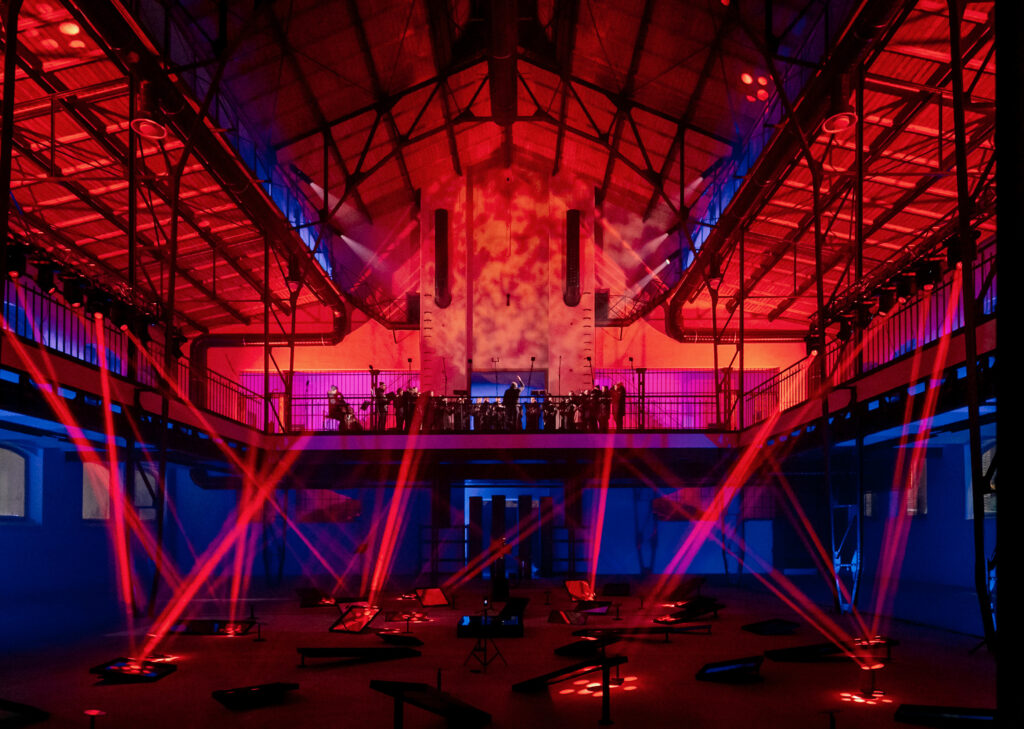
ADMISSION RULES
ENTRANCE EXAMINATION
Reflecting students participate in the competition for study places paid for by the state budget. In order to ensure that applicants’ evaluations are expressed according to a unified system, the evaluations in state tests and mandatory centralized exams are assigned the number of points in accordance with the document attached to Annex 1 of the Admission Rules – “Procedure for comparing applicants’ learning content evaluations” and appropriate coefficients.
In coordination with the Council of Higher Education, additional entrance exams are set for full-time studies, the purpose of which is to clarify the relevance of the applicant’s previously acquired skills and knowledge to his chosen study program and specialization. In the additional entrance exam, the applicant must receive at least 40 points, otherwise it is not possible to participate in the competition for study places paid for by the state budget.
Entrance exams for full-time studies
Qualification “Cultural work specialist’’ with specialization – Events, Theater Directing and Acting
- interview
- motivation letter (printed)
- presentation of the potential student’s experience/creative portfolio (in a freely chosen format)
Qualification “Cultural work specialist’’ with specialization – Music Management
- interview
- motivation letter (printed)
Qualification “Cultural work specialist’’ with specialization – Photo and Video Production
- interview
- presentation of the potential student’s experience/creative portfolio (in electronic format, a printed portfolio may also be included, which is not mandatory)
Qualification “Cultural work specialist’’ with specialization – Digital Content Production
- interview
- motivation letter (printed)
Qualification “Cultural work specialist’’ with specialization the – Technical Production of Events
- interview
- motivation letter (printed)
Qualification “Cultural work specialist’’ with specialization – Event Production
- interview
- motivation letter (printed)
- presentation of the potential student’s experience/creative portfolio (in a freely chosen format)
There are no entrance exams for part-time presence studies in the specialization “Event Production”, the education obtained by the applicants must correspond to the level of general secondary education established in the Republic of Latvia.
REQUIREMENTS FOR APPLICANTS
To be considered for admission, applicants must meet the following requirements:
- get acquainted with the College Admission Regulations;
- fill in the application form;
- submit a copy of the passport or identity card and present the original;
- 1 photo must be submitted (3 × 4);
- submit a copy of the document certifying secondary education and the transcript of records and present the original;
- submit a copy of the General Secondary Education Certificate with grades in the centralized examinations, presenting the original.
- Applicants who have completed secondary education abroad must submit a notarized translation of a document certifying secondary education in English or Latvian and an opinion of the Academic Information Center of the Ministry of Education and Science of the Republic of Latvia on equating the acquired education to the level of secondary education.
- If any of the documents submitted or presented at the reception contain a person’s surname (first name) other than the person’s passport, then a document certifying the change of surname (first name), such as a marriage certificate, must be presented and a copy submitted.
- If the applicant has obtained an educational document or degree abroad, a statement must accompany the application from the Academic Information Center on which educational document or degree obtained in Latvia corresponds to the educational document or degree obtained abroad.
- Applicants who have completed upper secondary education before 2004, as well as persons who have completed upper secondary education abroad or persons with special needs, do not need certificates of centralized examination results.
When submitting the documents, a registration fee of 20 EUR is set for each application, which covers the administrative costs related to the admission process.
Payment only with a payment card.
* Orphans and children who have been left without parental support (after presenting the original document issued by the state social security institution), are exempted from the registration fee.
CONTACTS
Study department: [email protected]
+371 67846238
Bruņinieku Street 57, Office 18.
www.kulturaskoledza.lv
facebook.com/LatvijasKulturasKoledza
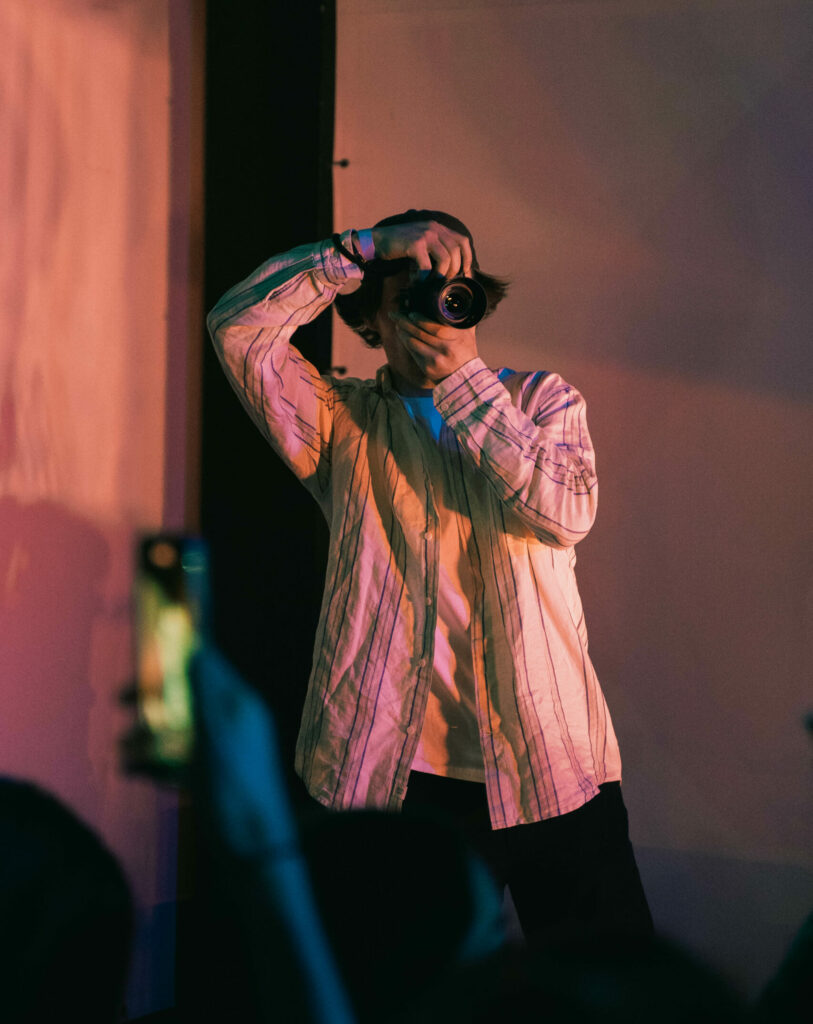
DETAILED ON SPECIALIZATION
When studying part-time, those interested can choose:
- to master the entire study program fully and to obtain the first level higher education;
- to study several study courses and receive a confirmation regarding the completion of the study courses (by taking the final examinations) or to receive a confirmation regarding the listening of the study courses (without the final examinations);
- to study one study course of interest to you, receiving a confirmation of its completion or listening.
Part-time studies in the specialization “Event Production” take place on Mondays.
RECOGNITION OF PROFESISIONAL EXPERIENCE
IT IS POSSIBLE FOR CULTURAL WORK SPECIALISTS TO SHORTEN THE STUDY TIME IN THE SHORT CYCLE PROFESSIONAL HIGHER EDUCATION STUDY PROGRAM AND TO STUDY 1.5 – 2 YEARS INSTEAD OF 3 YEARS!
Recognition of knowledge, skills and competencies acquired outside formal education or acquired through professional experience, as well as study results achieved in previous education, takes place in accordance with Cabinet Regulation No. 505 of 14 August 2018.
Only in professional study programs it is possible to pass examinations to recognize knowledge, skills and competencies acquired through self-study or professional experience in certain study courses, as well as to recognize study courses of other universities or knowledge acquired in further education programs, professional development education programs.
WHAT TO DO?
1) contact the Study Department of the College and state your wishes;
2) after the conversation, copies of all possible formal and non-formal education documents, CVs, statements on the performance of work duties appropriate to the library sector must be sent to the Study Department;
3) after reviewing them, you will receive information on how many credit points could be equated by taking examinations corresponding to the study courses (in order to study later, you must obtain 20 credit points per semester, for example, one internship is 4 credit points, study course “Preparation of projects” – 2 credit points);
4) if a higher education has been obtained in another study program or incomplete studies in a higher education institution, it is possible to simultaneously recognize the study results achieved in the previous education (for example – in the study course “Professional English” – 4 credit points);
5) then a decision must be made and, in case of interest, a reasoned submission must be written, which study courses you want to equate or recognize; *
6) after submitting the application to the Study Department, you will receive information about the examinations with the tasks to be prepared and the date of the examinations; *
7) after passing the examinations, an agreement on the commencement of studies at a later stage of studies (depending on the number of equated credit points) and an individual plan on how to pass those study courses that could not be equated will be concluded.
YOU CAN START STUDIES AT A LATER STAGE OF STUDY DURING THE STUDY YEAR!
* paid service in accordance with the Price list of paid services of the Latvian College of Culture at the Latvian Academy of Culture.
